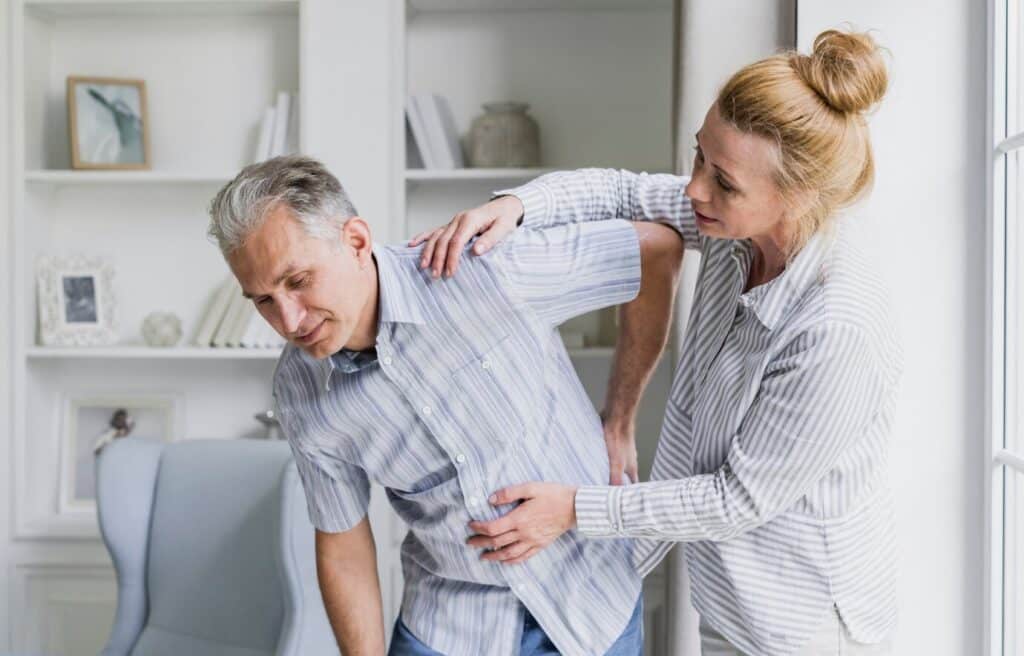Chronic pain can become an unwelcome companion as we age, affecting our daily lives and overall well-being. If you or a loved one are seeking relief from chronic pain, you’re not alone. In this guide, The Oaks at Nipomo in Nipomo, CA, presents seven surprising solutions tailored specifically for seniors experiencing chronic pain. From simple lifestyle adjustments to innovative therapies, we explore effective methods to alleviate discomfort and regain control of your life through chronic pain management.
1. Embrace Gentle Exercise
Regular physical activity is crucial for managing chronic pain in seniors. Gentle exercises such as walking, swimming, and yoga can help improve flexibility, strengthen muscles, and reduce inflammation. Aim for at least 30 minutes of activity most days of the week. Even a short stroll around the neighborhood or gentle stretching exercises can significantly affect pain management.
2. Prioritize Proper Nutrition
The foods we consume are vital to our overall health and can significantly impact chronic pain levels. Seniors should focus on a balanced diet of fruits, vegetables, lean proteins, and whole grains. Incorporating anti-inflammatory foods like turmeric, ginger, and fatty fish can help reduce pain and inflammation. Avoiding processed foods, excessive sugar, and alcohol can also contribute to improved pain management and overall well-being.
3. Explore Alternative Therapies
In addition to traditional medical treatments, seniors can benefit from exploring alternative therapies for chronic pain relief. Techniques such as acupuncture, massage therapy, and chiropractic care have been shown to alleviate pain and promote relaxation. These holistic approaches can complement existing treatment plans and provide additional relief for seniors struggling with chronic pain.

Alternative Therapies
4. Practice Mindfulness and Stress Reduction
Chronic pain is often exacerbated by stress and negative emotions. To reduce stress and promote relaxation, seniors can benefit from mindfulness techniques such as meditation, deep breathing exercises, and guided imagery. By cultivating a positive mindset and learning to manage stress effectively, seniors can minimize the impact of chronic pain on their daily lives.
5. Utilize Assistive Devices
Simple modifications and assistive devices can make daily activities more manageable for seniors with chronic pain. Investing in ergonomic furniture, supportive cushions, and mobility aids like walkers or canes can reduce strain on the body and alleviate pain. Seniors should also consider modifying their living spaces to eliminate trip hazards and make tasks easier without exacerbating pain.
6. Engage in Social Activities
Maintaining social connections and engaging in enjoyable activities can provide significant emotional support for seniors coping with chronic pain. Participating in group exercise classes, joining clubs or hobby groups, and spending time with loved ones can boost mood, reduce feelings of isolation, and distract from pain. Building a solid support network is essential for seniors navigating the challenges of chronic pain.
7. Seek Professional Support
Finally, seniors experiencing chronic pain should not hesitate to seek professional support from healthcare professionals specializing in pain management. From primary care physicians and physical therapists to pain specialists and psychologists, various professionals are equipped to help seniors develop personalized treatment plans tailored to their unique needs. Open communication and collaboration with healthcare providers are essential for optimizing pain management outcomes.
Frequently Asked Questions
Can chronic pain in seniors be completely cured?
- While chronic pain may not always be completely cured, it can often be effectively managed with the right treatments and lifestyle adjustments. The goal is to minimize pain and improve overall quality of life.
Are there any potential side effects of alternative therapies for chronic pain?
- While many alternative therapies are generally safe, seniors should consult with healthcare professionals before trying new treatments, as some may interact with existing medications or health conditions.
How can family members support seniors with chronic pain?
- Family members can provide invaluable support by offering emotional encouragement, assisting with daily tasks, accompanying seniors to medical appointments, and actively participating in their pain management journey.
Takeaways:
- Chronic pain doesn’t have to control your life; there are effective strategies for managing it.
- Lifestyle adjustments, alternative therapies, and professional support can all play a role in alleviating chronic pain in seniors.
- Building a solid support network and maintaining a positive mindset are crucial for coping with chronic pain.
- Seniors should consult with healthcare professionals to develop personalized treatment plans tailored to their needs.
Conclusion:
Chronic pain can significantly impact seniors’ quality of life, but it doesn’t have to dictate their future. By embracing gentle exercise, prioritizing proper nutrition, exploring alternative therapies, and seeking professional support, seniors can unlock relief and reclaim control over their lives. The Oaks at Nipomo in Nipomo, CA, is here to support seniors on their journey to pain-free living. If you or a loved one need assistance with chronic pain management, contact us at (805) 723-5206 for personalized guidance and support.








